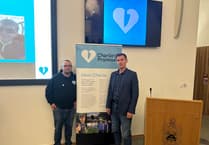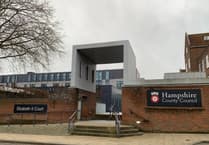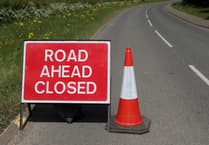A DAMNING investigation into the state of Hampshire Ambulance Service NHS Trust has shown it to be at a critically low ebb.
The report has not only sparked calls for the resignation of the chief executive, Richard Mawson, but local MPs have combined forces to urge immediate action to address any shortcomings.
Released last Friday, the Commission for Health Improvement (CHI) report has slammed the trust for poor working practices which, it is feared, could have put patient lives at risk.
Staff did not feel supported and listened to, and morale was very low. CHI strongly recommended bosses improve communication.
Furthermore, a determination to meet government response times had been pursued at the expense of patient care, with some non-emergency patients having to wait up to six hours to be taken to hospital.
The report comes at a time when the trust is struggling to meet government targets for responding to 75 per cent of life-threatening calls within eight minutes. Having hit the target for the first half of 2002, in December its records show a drop to just 68.4 per cent.
The findings have struck a chord with ambulance crews in Alton and Petersfield who believe the CHI report has served to justify their concerns over poor rural cover. Ambulances, they say, are being called away to respond to category ÔAÕ calls in more densely populated conurbations leaving the Òblack holeÓ which is Whitehill, Bordon, Liphook and Grayshott largely unattended.
In urging Òa significant need for improvementÓ the independent health watchdog CHI has highlighted in particular use by the service of old and run-down vehicles and of inadequate training provision. One incident was said to involve the sending out of two trainee ambulance technicians without a fully qualified member of staff which, they said, Òcould have put patients and staff at riskÓ.
Nor did the trust have a fair blame culture and Òwhen incidents were reported they were not always resolvedÓ.
CHI inspectors, who visited the countyÕs ambulance service last September, said the trustÕs work was further hampered by its poor financial situation and an inability to fill key executive posts.
There were, however, some positive aspects to the report. Ambulance crews had been praised by the public for Òtreating patients with dignity and respectÓ and the trust was commended for its active involvement in a project to develop and implement a new system of electronic patient records.
In welcoming the CHI report Hampshire Ambulance Trust bosses have confirmed that work had already started on addressing the problems.
Board chairman Sarah Murray said: ÒThis report provided an accurate reflection of the trust at the time of the review. We have made many changes and improvements but much more work needs to be done.Ó
Chief executive Richard Mawson added: ÒThe majority of those areas where CHI suggests improvements are needed had already been identified in our strategic business plan for 2002/03. A separate CHI Action Plan was developed following an action planning day to address recommendations in the CHI review.
ÒWe look forward to the continuing improvement that lies ahead and which will enhance our service to patients and improve staff morale.Ó
It is a statement which should give some encouragement to Joint Shop Stewards committee chairman for Hampshire Ambulance Trust, Jim Barnett, who confirmed this week that morale in the service was at an all time low.
The Alton ambulance man told The Herald that crews were fed up with having to rely on aging vehicles and with policies with which they did not agree.
In Alton and Petersfield they would continue to fight, for example, for 24-hour cover for the rural areas of North East Hampshire which were still, at times, left without an ambulance service.
He was sick, he said, of trust bosses laying the blame at the feet of financial constraints, believing that the current management has had time enough to pull the service round.
ÒThe problems that Hampshire Ambulance Service is now encountering are due to a lack of long-term planning commitment, poor communication with the unions and managerial decisions which have left a lot to be desired,Ó said Mr Barnett. He believes that, as chief executive of the trust, Richard Mawson Òshould do the honourable thing and stand downÓ.
Concerned in particular about cover in his constituency, James Arbuthnot, MP for North East Hampshire has described the CHI report as giving Òreal cause for concernÓ.
ÒWe do need a decent ambulance service, covering the North East Hampshire area particularly. It is essential that action is taken as a matter of urgency to put right those areas where shortcomings have been found,Ó he said.
East Hampshire colleague, Michael Mates was equally worried. ÒPoor management, important management posts unfilled, key managers away on long-term sick leave all adds up to a pretty sorry picture.
ÒThe grades given to various parts of the assessment mostly reflect Ôlittle progressÕ towards improving the service.
ÒThe whole team must digest this report urgently, and implement its recommendation, so that the people of Hampshire can have confidence that, when they need an ambulance, it will come quickly and that their needs will be met efficiently.Ó
The CHI inspection also covered the two organisations hosted by the Hampshire Ambulance Service NHS Trust: NHS Direct Hampshire and Isle of Wight, which is the local telephone enquiry service, and NHS Direct Online, which is the national internet service for NHS Direct.
Both were found to be innovative with high staff morale and good training methods.



